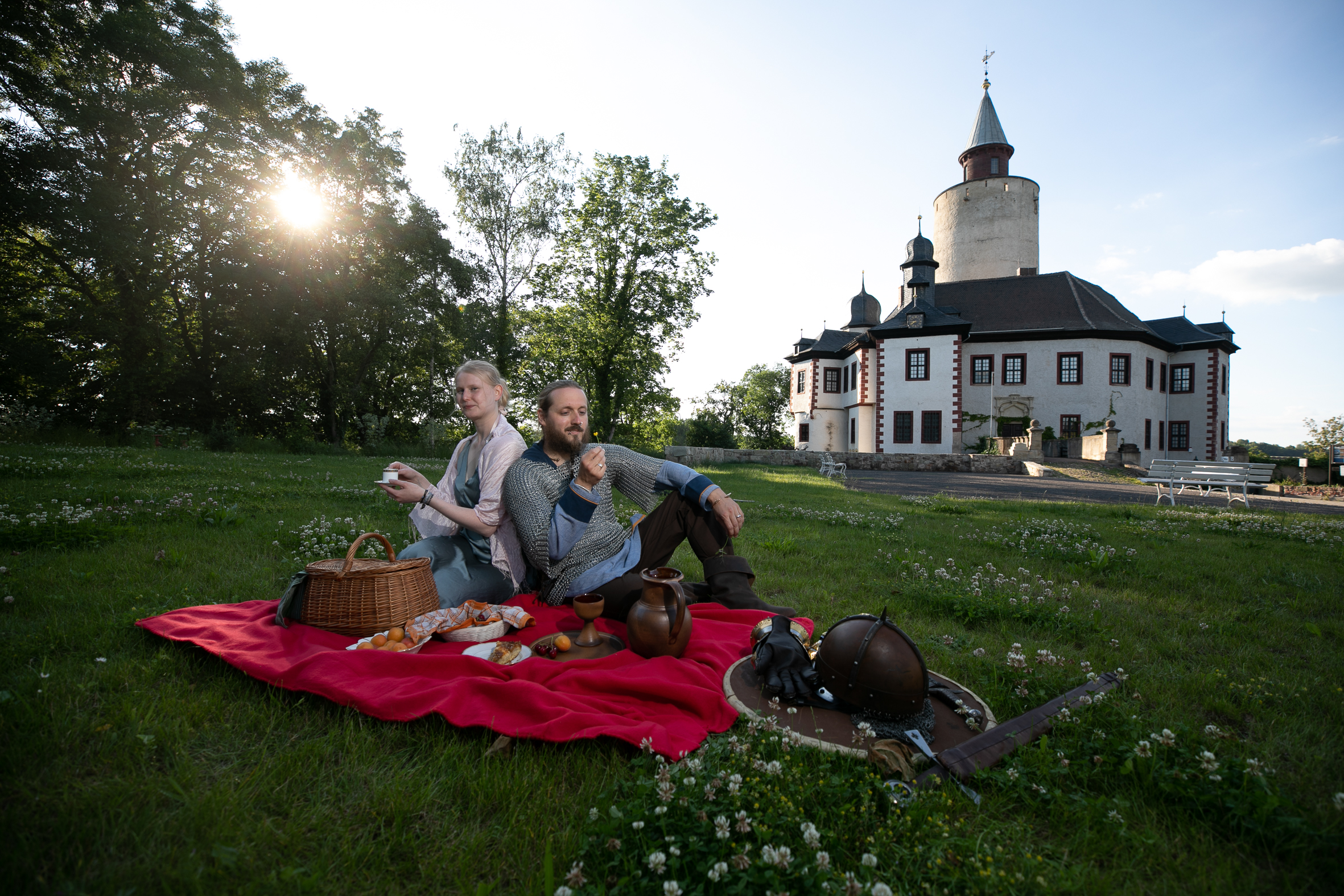An important strategically centre: Altenburg during the battle of Leipzig

Karl Philipp Fürst zu Schwarzenberg was commander-in-chief of the allied armies against Napoleon in 1813 (picture: Museum Burg Posterstein)
Karl Philipp Fürst zu Schwarzenberg, commander-in-chief of the 1813 allied armies against Napoleon, planned to occupy the town Altenburg as a strategically important place. From Altenburg further military actions against Napoleon could be planned. Also the Saxon, Russian and Prussian general Johann Adolf Freiherr von Thielemann (1765-1824) emphasized in a letter to Schwarzenberg on October 3rd 1813 the militarily advantages of the town, that has a castle lying high up on a hill that could easily be defended.
Tsar Alexander I. arrived in the evening
In fact Altenburg was the right place to accommodate thousands of soldiers as well as supreme commanders, generals, diplomats and their entourage over a longer period. On October 7th 1813 the allied troops occupied Altenburg. The headquarters were moved there from the town Penig. Tsar Alexander I. arrived on the same day and resided in Altenburg castle. Thereafter the Austrian foreign minister Metternich, the English legate Cathcart, the Russian diplomat Nesselrode and other politicians and important brass arrived.
On October 14th the Austrian emperor Franz received a message from Schwarzenberg that a stay in Altenburg would be save. The Prussian king and the Austrian emperor reached Altenburg on October 15th and stayed in the castle as well.
A town with 10.000 inhabitants accommodated more than 500.000 soldiers
In the year 1813 altogether 671 generals, 46.617 officers and 472.399 soldiers have been accommodated in the small town Altenburg, that had about 10.000 inhabitants at that time. Only in September and October 1813 the town spent the unbelievable amount of 147.681 thaler on the supply of the troops.
There is existing a detailed record (view here on Google books) on the year 1813 in Altenburg, written by the minister of finance of the town Altenburg, Friedrich Wagner (1792-1859). He is describing, how the citizens of Altenburg, all the villages and farms near-by and other towns in the neighbourhood (as Borna, Meuselwitz, Gera, Zeitz) had to deliver a substantial quantity of food, cattle, textiles and other things to the different armies.
All houses had to shelter 2, 3 or more wounded soldiers
Prisoners and wounded soldiers had to be accommodated and taken care of as well. The canon fire of the battle of Leipzig, 9 hours walk from Altenburg, could be heard in the town as well. After the first fights, masses of wounded soldiers arrived in Altenburg – and with them epidemic deceases. Nearly all official buildings of the town were already used some military hospitals, so that all houses in the Altenburg had to house 2, 3 or more wounded soldiers.
“Heaven help us to harvest”
The farms and manors in the region felt the war as well. Anna Dorothea Duchess of Courland, who owned the manor Löbichau near Posterstein, wrote in her letters from July and August 1813 that there was no day without soldiers who had to be accommodated. Often they took all food and horses with them. Special war taxes had to be paid and workers and farmers were recruited as soldiers. “Heaven help us to harvest”, the Duchess wrote to her friend. – Years after the wars of liberation from Napoleon the people of Altenburg had to pay special taxes to pay the war debts of the Duchy of Saxon-Altenburg.
Special exhibition at Museum Posterstein Castle

Poster of the special exhibition “Napoleon – IM Spiegel zeitgenössischer Karikaturen” in Museum Posterstein Castle in 2013
The Museum Posterstein Castle, regional history museum in the county of Altenburg, shows from September 1st to November 17th 2013 a special exhibition on the battle of Leipzig, which now is 200 years ago. Basis for the exhibitions are about 50 Napoleon caricatures, Wagner’s record of Altenburg in 1813 and original military letters from 1813. On October 13th a book will be published as well (in German). For more information, contact the museum at info@burg-posterstein.de.
(Marlene Hofmann / Museum Burg Posterstein)

